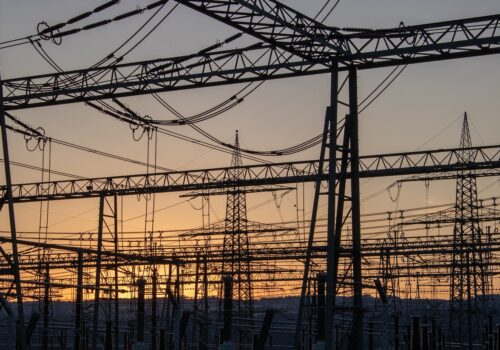North America’s moment: The case for energy cooperation
As geopolitical tensions rise, energy security has reemerged as a top national security concern. At the same time, the need to shift to clean energy presents both new challenges and economic opportunities. In North America, this reconfigured energy landscape along with an already-strong foundation for continental cooperation puts the United States, Canada, and Mexico in an advantaged position to bolster their collective energy security, promote sustainability measures, and boost competitiveness in global energy markets.
With the trilateral representing over 30 percent of global energy demand, energy security is already a top priority. The United States and Canada are net energy exporters, but demand is expected to increase, particularly with the growth in artificial generative intelligence. Mexico has been managing an unreliable energy supply and oversaturated grids. Expanding cross-border pipelines and improving energy infrastructure can help ensure energy security across the continent.
LAUNCH EVENT
On the sustainability front, amid the global transition to a net-zero energy system, each trilateral member has invested in clean energy strategies, which are leading to collaboration. Opportunities to build further on these accomplishments abound, but will require major investments in renewables deployment, cross-border electricity transmission, and enhancing grid stabilization.
As the transition unfolds across North America, it also has the opportunity to maximize economic competitiveness in both clean technology value chains and low-emissions industrial activities. China’s dominance in the former has prompted the United States to diversify supply chains through incentives and tariffs, benefiting partners like Canada and Mexico. Additionally, reducing emissions in industries like natural gas, steel, petrochemicals, and cement offers North America a strategic advantage in emerging low-emission trade systems.
Cultivating a North American energy strategy that address all of the above will require harmonizing priorities, streamlining licensing and permitting processes across the three countries, and promoting market integration. These actions will bolster the competitiveness and security of North America in an increasingly multipolar market.
AUTHORS
RELATED CONTENT
OUR WORK

The Global Energy Center develops and promotes pragmatic and nonpartisan policy solutions designed to advance global energy security, enhance economic opportunity, and accelerate pathways to net-zero emissions.
Image: A 3-D rendering of North America. Maps from NASA imagery. Source: Freepik.






